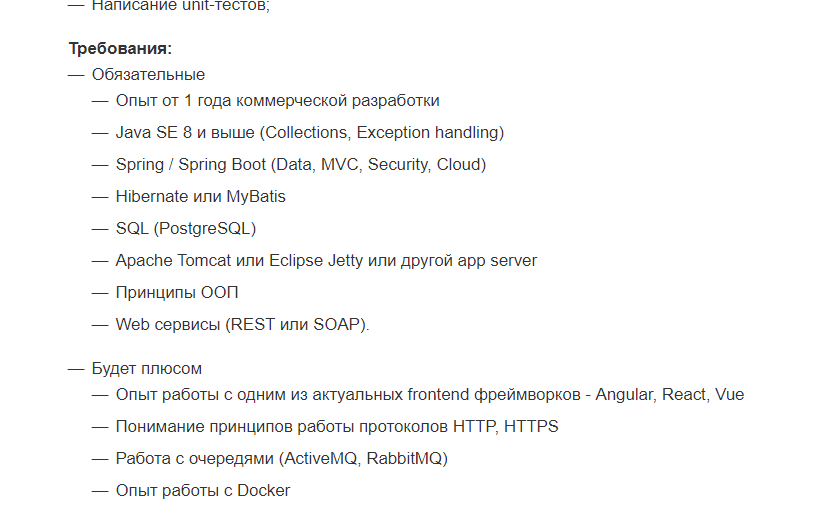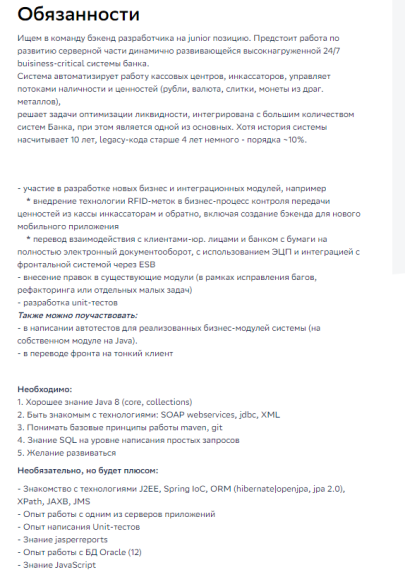Answer the question
In order to leave comments, you need to log in
What to choose at the beginning of your career - Java EE or Spring?
Good evening everyone. There are 2 offers, one focusing on JAVA EE, the other focusing on Spring + other components. What to choose, so as not to miscalculate? Stacks attached in pictures


Answer the question
In order to leave comments, you need to log in
First, JEE is a set of standards. On which, by the way, Spring also works. Secondly, the first picture does not give an understanding of the essence of the vacancy, but in my June years I would have seized the second one with my teeth, these will teach you everything.
This is not an offer, but a job posting. An offer is received after successfully passing all stages of the interviews. Take where you like the company more if you pass both
If in Russia - only Spring. It traditionally lags behind the enterprise.
If startups in the valley - Jakarta/Microprofile are essentially twins.
I would create my own label for each section. This makes it easier to enter information later.
And in order to select the main news, you can create a VIEW that combines all objects from all tables into one using UNION.
To be more precise, for a pivot table, only a few parameters can be taken out:
object ID, section, date (to sort). After selecting for display on the main one, you can already request the necessary fields from the profile table.
If you feel that the table will turn out to be too "rarely filled" due to the large number of columns (additional features), transfer all these features to a separate table.
For example, you can make such tables: articles (articles), properties (additional properties of the article, what they can be) and properties_values (values of additional properties, has the structure id_article - id_property - value).
A similar approach is used in the CMS that I use.
Usually, the base is first converted to third normal form ( 1NF , 2NF , 3NF ) and then partially denormalized if there are performance problems.
There are several ways. For example, create a table with common fields for all types of articles, such as articles: id, slug, title, desc, type. Then for each specific type - a table with fields specific to this type, article_types: id, field1, field2, ...
Or do a complete denormalization - in one table all possible fields, which, depending on the type, will or will not be NULL.
Or you can serialize additional fields in JSON and store it in a special field.
Didn't find what you were looking for?
Ask your questionAsk a Question
731 491 924 answers to any question